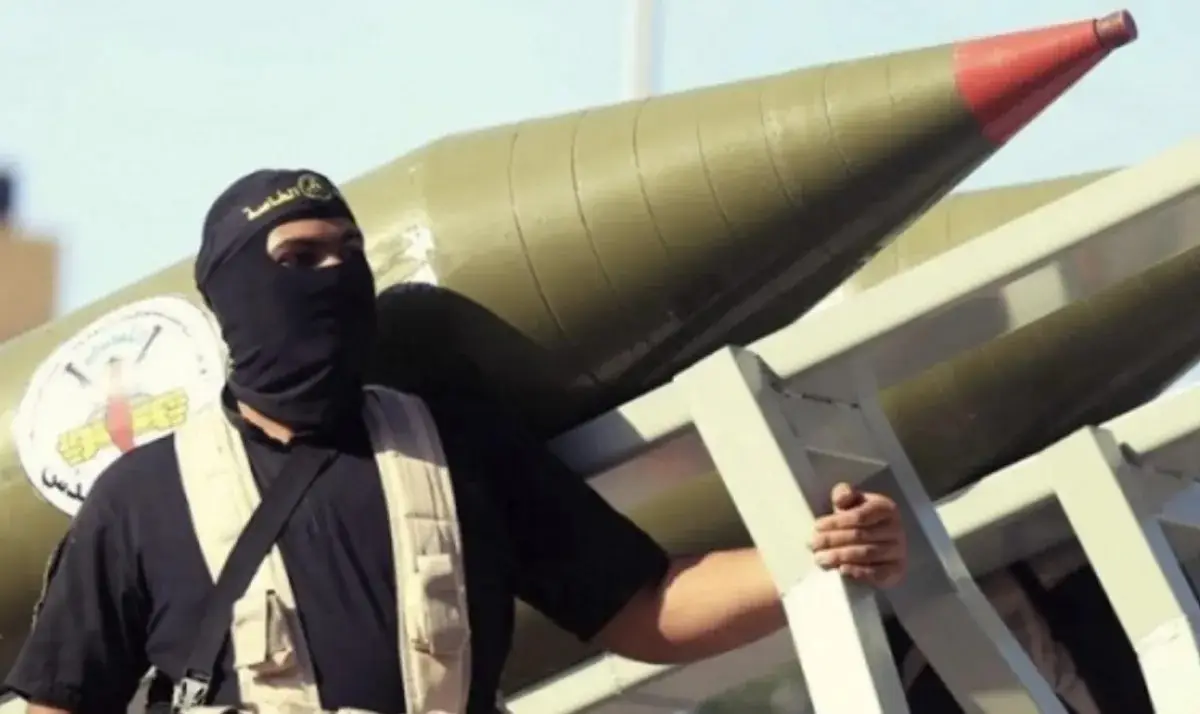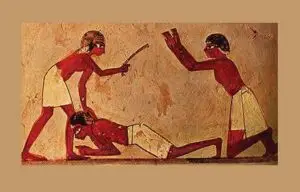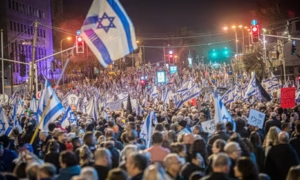If the TaNaKh, Israel’s Foundational Literature, had nothing to say to the moment we are living, it certainly would not merit much of our attention. But it does, and what it says informs how Israel thinks and behaves.
Chapter 35 of Bamidbar deals with the distinction made in biblical criminal law between premeditated and unintentional homicide. The passage asks whether the slayer planned to kill, with prior intent, or whether he killed another accidentally in an unanticipated situation. Other variables taken into account in the legal equation are causality, the question of whether death resulted directly from the act of another, or whether some other agency stood between the slayer and the victim, thereby breaking the circuit of causality.
After Israel’s 1948 War of Independence, wrote historian Benny Morris, “the Israelis tended to hail the “purity of arms” of its militiamen and soldiers and to contrast this with Arab barbarism, which on occasion expressed itself in the mutilation of captured Jewish corpses.” Rabbi Yosef Shlomo Elyashiv Goren, Israel’s first Chief Rabbi of the Military Rabbinate, wrote that “despite the explicit Torah commandment to wage war, we are enjoined to have mercy on the enemy too, and not to kill even in wartime, except when self-defense is imperative […], and not to harm a noncombatant population. It is certainly forbidden to harm women and children who are not taking part in the war.”
This rule was later formalized and extended by Ehud Barak, the then chief of staff under the Rabin government. Under his sanction, a committee chaired by Tel Aviv University’s Asa Kasher was formed to develop a general behavior code for all Israel Defense Forces personnel and operations.
The result of the committee’s work was a seven-page code entitled The Spirit of the IDF, which Kasher described as “one of a kind,” indeed “the most profound code of ethics in the world of military ethics, in particular, and in the world of professional ethics, in general.”
The essential mission of the IDF, says Israeli philosopher and political theorist Yoram Hazony, has never been the safeguarding of “state, citizens, and democracy.” Its purpose was to serve as the guardian of the Jewish people and to protect Israel’s character as the state of the Jewish people. In recent years, for example, the IDF carried out an extended mission in Ethiopia and the neighboring states, whose purpose was to protect Ethiopian Jews from bloodshed and famine. IDF operations in the Soviet Union on behalf of persecuted Russian Jews were of this kind as well. The Entebbe raid in 1976 was aimed at rescuing 103 Jewish hostages, many of whom were Israelis, but it seems likely that the IDF would have undertaken this operation as well even if all the hostages had been French Jews.
The people of Gaza elected Hamas as its governing body, an organization with a covenant that states, “The prophet, prayer and peace be upon him, said: The time will not come until Muslims will fight the Jews (and kill them); until the Jews hide behind rocks and trees, which will cry, ‘O Muslim! there is a Jew hiding behind me, come on and kill him!”
In late 2006, Ismail Haniyeh, the political leader of Hamas, on Israel’s eastern border, reiterated that Hamas will never recognize the “usurper Zionist government” and will continue “jihad-like movement until the liberation of Jerusalem.” Hamas co-founder Mahmoud Al-Zahar also said, “I dream of hanging a huge map of the world on the wall at my Gaza home which does not show Israel on it. This dream will become real one day. I’m certain of this because there is no place for the state of Israel on this land.”
Should one want to think cynically and deny that both sides do not really mean what they say, there is still an undeniable and clearly stated intentionality separating both sides in the conflict. Israel doesn’t go to war to cause pain; in fact, it doesn’t even go to war to kill those who want to kill Israelis. It goes to war as a last recourse to defend its citizens and, in the ultimate instance, the Jewish people. Hassan Nasrallah, Hizbu’llah’s leader, which, like Hamas, threatens Israel in its Northern borders said in a speech, “if we searched the entire world for a person more cowardly, despicable, weak, and feeble in psyche, mind, ideology, and religion, we would not find anyone like the Jew. Notice, I do not say the Israeli.”
Since the 1991 Gulf War, Israel has invested heavily in building bomb shelters. After Iraqi leader Saddam Hussein rained Scud missiles on Israel, every new Israeli home has been required to have secure areas. In addition, the Israeli government offers incentives for contractors to add bomb shelters onto older buildings in exchange for free rights to develop two and a half additional floors.
Today, after billions of shekels of government investment, roughly two-thirds of Israelis have access to secure areas that protect against the fallout of rocket fire. In cities close to Gaza, such as Ashkelon, the rate is as high as 85 percent. When rockets manage to slip through Iron Dome, shelters play a crucial role in protecting against fatal shrapnel and other fallout.
The lack of bomb shelters in Gaza contrasts starkly with Israel. While Hamas has built an extensive underground network of tunnels and bunkers since 2009, after its first conflict with Israel, as well as hundreds of smuggling tunnels, no effort has been made to protect civilians from Israeli air raids. Alan Marcus, director of strategic planning for the city of Ashkelon, who initiated a sister-city partnership with the Gaza municipality during the 1990s, which has since fallen apart, noted that “For the amount of cement that they used to build their bunkers and underground tunnels, which you can drive trucks through, they could have made for every single person and every single house a bomb shelter.” As Christa Case Bryant and Ahmed Aldabba write in the “Christian Science Monitor,” much of it has to do with a culture of martyrdom that welcomes death.
Writing for “The Atlantic,” Jeffrey Goldberg noted that “in 2005, the Palestinians of Gaza, free from their Israeli occupiers, could have taken a lesson from the Kurds—and from David Ben-Gurion, the principal Israeli state-builder—and created the necessary infrastructure for eventual freedom. Gaza is centrally located between two large economies, those of Israel and Egypt. Europe is just across the Mediterranean. Gaza could have easily attracted untold billions in economic aid.
The Israelis did not impose a blockade on Gaza right away. That came later, when it became clear that Palestinian groups were considering using their newly liberated territory as a launching pad for attacks. In the days after withdrawal, the Israelis encouraged Gaza’s development. A group of American Jewish donors paid $14 million for 3,000 greenhouses left behind by expelled Jewish settlers and donated them to the Palestinian Authority. The greenhouses were soon looted and destroyed, serving as a perfect metaphor for Gaza’s wasted opportunity.
The world is holding Israel responsible for Hamas being unable to have developed more lethal capacities. Israel’s moral position would be stronger if the casualty count were more equal.
Those who talk about asymmetry forget that in war nobody wins; one side just loses less than the other. This is a conflict where one side, Israel, is trying to prevent more losses, and the other, Hamas, is maximizing them. It does not require much of a mind to understand that “resistance” campaigns by groups like Hamas and Palestinian Islamic Jihad bring far greater harm to Palestinian civilians than they do anything resembling liberation.
At a National Press Club conference in Washington in 1957, former Israeli Prime Minister Golda said, “Peace will come when the Arabs love their children more than they hate us.” Twelve years later, after the Six-Day War, probably echoing the passage in Numbers, she said:
“When peace comes, we will perhaps in time be able to forgive the Arabs for killing our sons, but it will be harder for us to forgive them for having forced us to kill their sons.”


